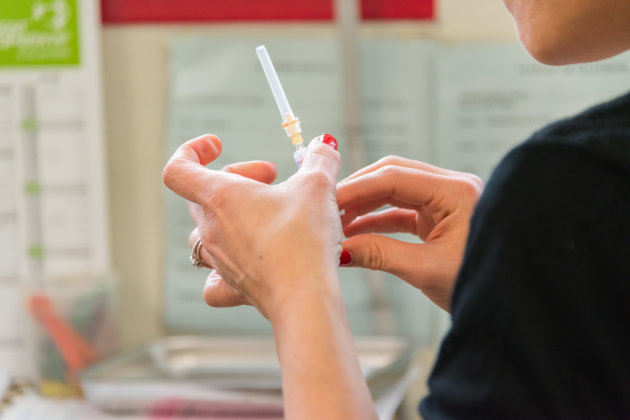As mutated strains of the coronavirus represent new threats in the pandemic, vaccine makers are racing to respond.
Moderna, whose two-dose vaccine has been authorized for use in the U.S. since Dec. 18, said Monday that it is now investigating whether a third dose of the vaccine will work to prevent the spread of a variant first seen in South Africa, while it also tests a new vaccine formula for the same purpose.
“Out of an abundance of caution and leveraging the flexibility of our mRNA platform, we are advancing an emerging variant booster candidate against the variant first identified in the Republic of South Africa into the clinic to determine if it will be more effective … against this and potentially future variants,” Moderna CEO Stephane Bancel said in a statement.
Moderna on Monday also said its COVID-19 vaccine could protect against the U.K. strain but that it is less effective against the strain identified in South Africa.
Pfizer and BioNTech, whose vaccine was also authorized in December, announced last week that their COVID-19 vaccine creates antibodies that could protect vaccine recipients from the coronavirus variant first identified in the United Kingdom.
“This is not a problem yet,” Paul Offit, MD, director of the Vaccine Education Center at Children’s Hospital of Philadelphia, told CNBC.
“Prepare for it. Sequence these viruses,” he said. “Get ready just in case a variant emerges, which is resistant.”
There were at least 195 confirmed cases of patients infected with the U.K. variant in the U.S. as of Friday, according to the CDC. No cases from the South African variant have been confirmed in the U.S. To try and prevent the variant from entering the country, President Joe Biden plans to ban travel from South Africa, except for American citizens and permanent residents.
The U.S. has reported more than 25 million total COVID-19 cases, according to data from Johns Hopkins University, marking another major milestone during the pandemic.
That means about 1 in 13 people in the U.S. have contracted the virus, or about 7.6% of the population.
“Twenty-five million cases is an incredible scale of tragedy,” Caitlin Rivers, an epidemiologist at the Johns Hopkins Bloomberg School of Public Health, told The New York Times . She called the pandemic one of the worst public health crises in history.
After the first U.S. case was reported in January 2020, it took more than 9 months to reach 10 million cases in early November. Numbers rose during the holidays, and 10 million more cases were reported by the end of the year. Following a major surge throughout January, with a peak of more than 300,000 daily cases on some days, the U.S. reached 25 million in about 3 weeks.
Read the full article here: https://www.medscape.com/viewarticle/944638


